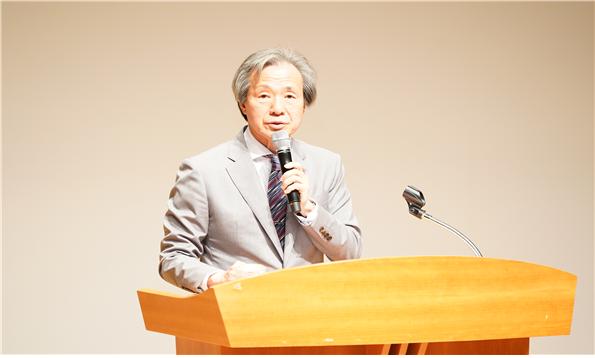
Jung Ki-suck, the new president of the National Health Insurance Service (NHIS), has revealed his intention to change the overall reimbursement system to prevent erosion in the coverage of essential medical services.
For instance, Jung will increase reimbursements for surgeries and other medical practices with low cost-compensation rates while reducing those for imaging tests, such as CTs and MRIs.
“If you look at essential medical care, surgical procedures are underpriced, while tests and minor procedures are overpriced,” Jung said in an interview with news cable channel YTN Thursday. “That's why hospitals provide MRI and CT tests excessively.”
The new NHIS head cited CT scans as an example.
“CT tests accompany radiation. Fukushima is not the only thing to worry about. One CT test results in an enormous amount of radiation, but people take it just because doctors recommend it,” Jung said. “Unless these things are not adjusted, it will affect the (health insurance) finances and the public’s health. So, we will discourage excessive tests while compensating for the cost of the surgery."
If specialists show their full capacity, the NHIS will compensate them, he said.
“On the other hand, we will reimburse medical services provided by machine to levels so that hospitals can redeem costs,” he said. “We can adjust the overall compensation with just such changes.”
He added that by adjusting relative value points like this, NHIS will create a medical environment where surgeons are respected.
"Previously, NHIS tended to provide relatively higher values for using medicine or performing tests than surgeries," Jung said. "That explains why surgeons give up their main business of surgery and shift to internal medicine. Things shouldn't go on this way. There may not be huge problems for now. But the future generations will not be able to receive operations from excellent surgeons."
Jung reiterated that there will be a better reimbursement system for essential, emergency, and critical care. If the NHIS runs short of money, it will adjust the rest to ensure just standard care so that essential care is not compromised.
Besides, as a way to strengthen the management of insurance premiums, Jung said he would push for introducing a "special police system," which grants special judicial police powers to NHIS.
"It's good to increase premium income, but we can't increase premium levels, so we have to reduce expenditures. Over the past 10 years, 3.3 trillion won ($2.57 billion) has been recovered by uncovering fraudulent billing by hospitals run by individuals," he said. "On average, about 200 billion won worth of fraudulent billings are made annually. If we can stop that, the expenditure will be significantly reduced."
Jung went on to say, "We need to reveal the violations by hospitals not run by doctors and collect the money. We have a system in place, but we don't have the authority to investigate.”
If the special police system is introduced, expenditures will be reduced, so the NHIS can maintain health insurance without paying more premiums, he added.
"When we refer these cases to the police, the investigation is delayed for 11 months or a year. In the meantime, the hospitals run by non-doctors close their doors and accounts and disappear, making it too late for NHIS to collect the money," he said. "I think the bill for special judiciary power for NHIS must be passed within this parliamentary session.”
He stressed that at stake is how rival political parties pass the law in a bipartisan agreement urgently.

